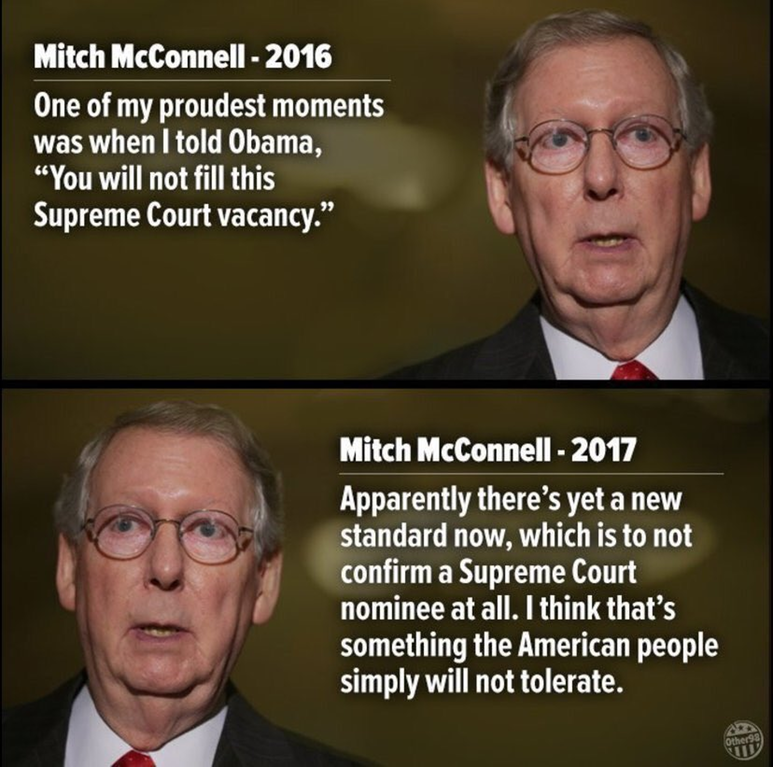Identity Politics and Life
Interestingly enough, even the president of the United States isn’t immune from the discussion of identity politics and racism. It seems that he is even leaning into it by pledging that the next Supreme Court justice will be a black woman. As the link points out and as everyone kind of knew going in, there was much protesting. Some people have called it reverse discrimination. Then again, it is not completely out of the realm of possibility for conservatives to also play identity politics. Amy Coney Barrett replaced Ruth Bader Ginsberg. Clarence Thomas replaced Thurgood Marshall. I’m sure those were just coincidences.
What exactly is systemic racism and what can we do to combat it? When institutions and companies make extra efforts to be diverse are they in fact participating in reverse discrimination? These are excellent questions and questions we don’t have easy answers for.
Unless there is a compelling reason, each institution, company, or organization should reflect the overall demographic breakdown of the community it is in. There are notable exceptions where we look foolish for arguing otherwise. Hooters is not going to hire male wait staff. The vast majority of teachers, garbage collectors, and soldiers will be skewed to one gender or another. The vast majority of professional and amateur athletes won’t be a representative sample either.
So, do we make specific efforts to be inclusive when those efforts might stack the deck for a particular position? That of course depends on the specific reason why someone like Biden might be restricting his search. The law impacts different groups in different ways. The court currently has three women on it. It has one African American. Adding an African American woman adds both of those perspectives.
When we measure the presence of racism based on the measurement of the outcome we often paint with a very broad brush. Yesterday, I mentioned the NFL. Jack Easterby was hired by the Texans in 2019 as an executive vice president. Without going into specifics on him we could simply say that it was a position he had never held before.
So, how in the blazes did he get such a position? Obviously, he knew some people and one thing led to another. That’s usually how these things work. The trouble is that when the vast majority of owners and executives are white then the “he knew someone” usually translates into hiring of another white guy. People hire people they are comfortable with or already know. It doesn’t make them a racist per se, but the outcome is a negative one for people of color.
Easterby got his start as a character coach of sorts. A character coach should be adept at relating to players and other employees. They should be comfortable with him. If a majority of the players are African American then wouldn’t it make more sense to have a character coach that is African American? Of course, they hired someone else to be a character coach when Easterby was promoted. He is someone Easterby knew and of course he is also white.
I don’t have any easy answers. This isn’t to say that men can’t relate to women or vice versa. This isn’t to say that people of color can’t relate to white people or vice versa. This isn’t to say that someone that came from money can’t relate to someone that didn’t or vice versa. If relating to special populations is a considerable part of the job then whether or not someone can represent that special population has to be a serious consideration. If we continue go with the “guy we know” then that isn’t likely to happen.
 “Conservatives interrupt liberals at significantly higher rates than liberals interrupt conservatives,” the study, to be published in The
“Conservatives interrupt liberals at significantly higher rates than liberals interrupt conservatives,” the study, to be published in The 